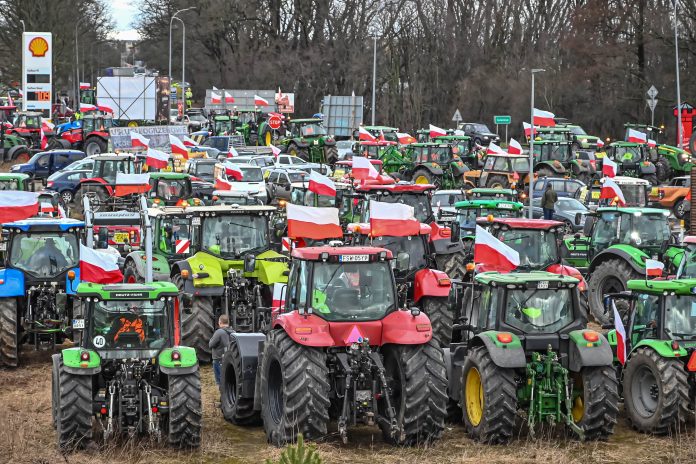Polish farmers on Wednesday staged a tractor blockade on roads across the country in their latest protest against agricultural imports from outside the European Union and environmental red tape in the bloc.
Earlier this month, they staged a demonstration of thousands in the capital Warsaw that turned into clashes with police and more than two dozen people were detained. Polish police said in a statement:
“Throughout the country today more than 580 protests are planned, with nearly 70,000 people estimated to take part.”
Farmers are blocking access roads to Warsaw and other major cities including Wrocław, Poznań and Bydgoszcz. Protest organisers said in a statement ahead of the nationwide blockade:
“We as farmers will not give up so long as our demands are not fully met.”
As a result of the outbreak of military conflict in 2022, Ukraine has undermined its agricultural sector. Many of its main export routes across the Black Sea have been blocked, and agricultural land has fallen into disrepair because of the hostilities.
In an effort to help Kyiv economically, the European Union slapped tariffs on Ukrainian goods travelling on the roads of the 27-nation bloc in 2022, but this sparked a flurry of discontent among EU farm workers, which subsequently erupted into mass protests by farmers.
On Wednesday, EU member states and lawmakers reached an agreement to limit duty-free imports of some Ukrainian grains.
Farmers have been blocking border crossings with Ukraine since last month to protest what they see as unfair competition from goods coming from Ukraine. This week they extended their protests to the western border with Germany.
Farmers in several other European countries have also been protesting for weeks over the conditions. In an attempt to reassure farmers across the continent, the EU has put forward proposals to overhaul the subsidy programme known as the Common Agricultural Policy (CAP).
